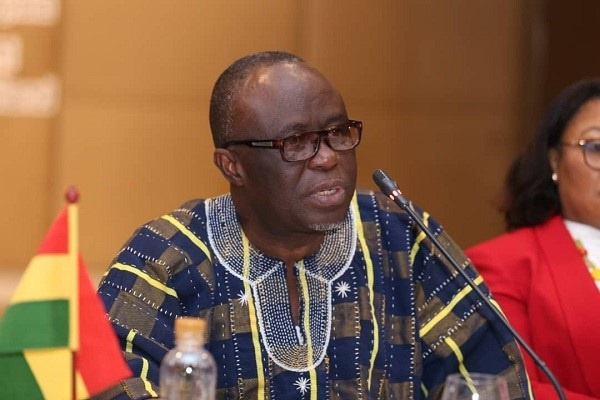By Stanley Senya
Accra, June 1, GNA – The Chairman of Parliament’s Select Committee on Environment, Science, and Technology, Mr. Yaw Frimpong Addo, has hailed the Ghana Atomic Energy Commission (GAEC) as a national asset with untapped potential to address Ghana’s developmental challenges.
Describing GAEC as “the epicentre of solutions,” Mr. Addo said the Commission’s work in nuclear science and its wide-ranging applications, from agriculture and healthcare to energy, water management, oil and gas, and telecommunications positioned it as a key driver of national progress.
“I cringed during the presentation, not because GAEC lacks solutions, but because it lacks the support it truly deserves,” Mr. Addo remarked during a working visit to the Commission at Kwabenya in Accra.
Citing global examples, he pointed out how other countries use nuclear technology to preserve perishables like bananas for up to six months, while Ghana continues to grapple with post-harvest losses despite having similar capabilities.
The Committee’s visit formed part of its oversight responsibilities and aimed to foster deeper engagement with scientific institutions to support policy formulation and national development.
The delegation toured laboratories at the School of Nuclear and Allied Sciences (SNAS) and was briefed on GAEC’s innovations and ongoing projects. Members also visited parts of GAEC’s land currently under threat from encroachment.
While on the site, they encountered illegal construction by land guards, who fled upon the arrival of the Committee and accompanying military officers. Some unauthorised structures were dismantled, and construction equipment seized.
The Committee pledged to support GAEC in safeguarding its lands and urged stronger law enforcement to deter future encroachments.
During an interaction with staff, GAEC raised concerns over inadequate funding and the restrictive Fees and Charges regime mandated by Parliament, which limits the Commission’s ability to generate revenue through commercial services.
Mr. Addo acknowledged the issue and assured the Commission of the Committee’s willingness to advocate for policy revisions.
“If direct government support falls short, we must revisit the current fees structure. GAEC should be allowed to charge market rates for specialised services,” he said.
He also encouraged GAEC to step up public education and stakeholder outreach to raise awareness about its work.
“If someone out there needs your services but doesn’t know you exist, that’s a missed opportunity,” Mr. Addo noted.
The Committee Chair urged GAEC to maintain open communication with Parliament, especially when drafting science-related legislation.
He reiterated Parliament’s readiness to support the Commission’s mandate and legislative needs.
“Our doors are open. If you need backing on science policy, reach out. We must work together to fast-track Ghana’s development,” he said.
Professor Hamza Adam, Ranking Member of the Committee and MP for Kumbungu, praised GAEC’s contributions but lamented the low appreciation of science among the public and some lawmakers.
He attributed this gap to the technical nature of research, urging GAEC to simplify its communication.
“Science must be accessible. When people understand its relevance, they are more likely to support it,” he said.
Founded in 1963, GAEC is Ghana’s premier institution for nuclear research and its peaceful application. Its work spans radiotherapy, cancer treatment, food preservation, water quality testing, and clean energy development.
GNA
Edited by Christian Akorlie
